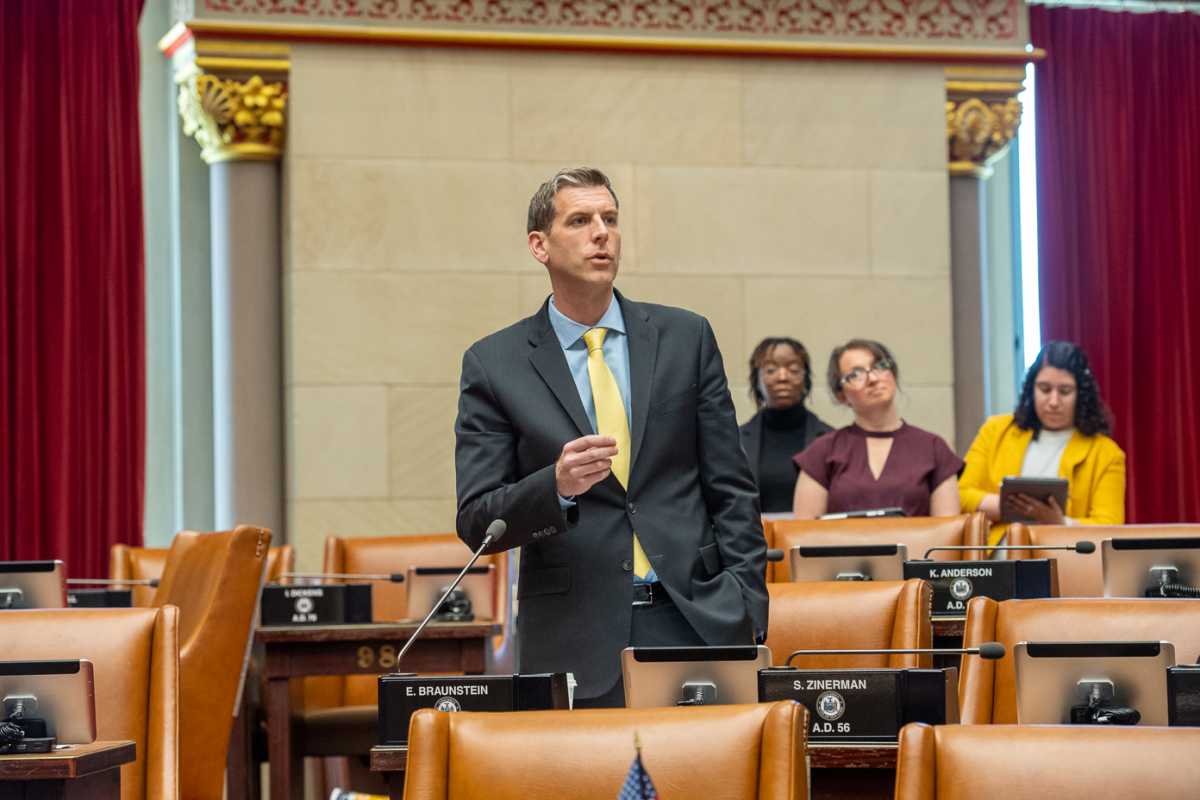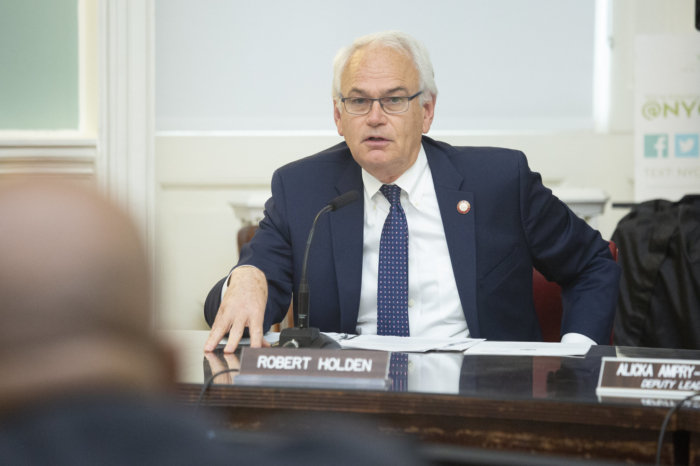Two bills sponsored by Assemblyman Edward Braunstein to provide tax relief to middle-class New York City cooperative and condominium owners have been passed in the Assembly and Senate.
A.7758 expands the J-51 program, and A.4972A extends the property tax abatement available to co-op and condo owners. Additionally, Braunstein has introduced bill A.5050, aimed at providing financial relief to co-op and condo buildings should Local Law 97 take effect as scheduled.
“With the cost of living on the rise, it is critical that we do all we can for middle-class co-op and condo owners by holding down their maintenance costs,” Braunstein said. “The extension and expansion of the J-51 program, as well as the extension of the co-op and condo property tax abatement, are crucial to protecting this vital stock of affordable housing in New York City.”
The J-51 tax abatement is a property tax abatement for co-ops and condos intended to assist with the affordability of capital improvements. Braunstein’s bill, A.7758 (S.4709A), improves upon the J-51 Program – which expired in June 2022 – and will allow co-ops to initiate upgrades that might have otherwise been financially burdensome.
As a result of this legislation, the qualification threshold for co-ops to be eligible for the program will also be raised from $35,000 to $45,000 assessed value (AV), significantly expanding the number of co-ops that can take advantage of the program.
For context, a valuation of $45,000 means a unit’s market value is roughly $350,000. The bill authorizes the city to adopt laws to provide this property tax abatement for eligible construction that is completed after June 29, 2022, and before June 30, 2026.
Under the city’s property tax system, co-op and condo owners pay significantly higher effective property tax rates than owners of comparably valued one-, two- and three-family homes.
Braunstein’s second bill, A.4972A (S.3252A), seeks to address this inequity by extending for another four years New York City’s partial property tax abatement program for co-op and condo owners. Extending the current abatement program will continue property tax relief for hundreds of thousands of New York City co-op and condo owners.
In 2019, New York City enacted Local Law 97, which set carbon emissions caps on large buildings starting in 2024.
Should New York City move forward with the implementation of Local Law 97, Braunstein has introduced bill A.5050, which seeks to provide buildings working to comply with the requirements of the law with two-fold relief: tax abatements in accordance with the total reduction of greenhouse gas emissions, and a tax exemption equal to any assessed value increase due to the eligible improvement for a period of 20 years.
“While we recognize the need to reduce greenhouse gas emissions in order to protect the environment, middle-class co-op and condo owners, whose buildings fall under the purview of Local Law 97, would not be able to withstand the financial burden placed on them to meet the requirements of this law,” Braunstein said. “Acknowledging the pending implementation of the law by the City of New York, I’ve introduced and am urging passage of a bill seeking to offer relief in the form of a tax abatement and exemption to eligible co-op and condo owners. This would help offset the costs associated with the work and upgrades necessary to reduce building emissions.”
This bill is being carried in the Senate by Senator Kevin Parker (S.943A). Bill A.5050 has been referred to the Assembly’s Real Property Tax Committee.
Warren Schreiber, co-president of the Presidents Co-op & Condo Council, said the J-51 program is more than just a property tax break.
“It is a vital tool for preserving and improving the quality of life for millions of New Yorkers who live in cooperative housing,” Schreiber said. “By encouraging co-ops to invest in their properties, the program helps maintain the city’s affordable housing stock and prevents deterioration and displacement. The J-51 program is not a handout but an intelligent investment in the future of our city.”
Bob Friedrich, who is president of the largest garden apartment co-op in New York, Glen Oaks Village, said he can attest to the importance of the J-51 program.
“This program allows affordable co-ops to apply for tax reductions to cover the cost of major capital improvements,” Friedrich said. “A few years ago we replaced 18,000 windows with energy-efficient windows. We could not have done this without the economic benefits of the J-51 program.”
Senators Toby Ann Stavisky and John Liu applauded Braunstein on the passage of the bills.
According to Liu, the co-op and condo tax abatement and J-51 tax abatement have been instrumental in enabling middle-income families, first-time homebuyers and retirees to maintain and renovate their homes, and enjoy the advantages of homeownership without the burden of excessive taxes.
“Extending the co-op and condo tax abatement for another four years and replacing J-51 with the new Affordable Housing Rehabilitation Program will provide significant relief and stability to countless co-op and condo owners across the five boroughs and especially in northeast Queens where many residents rely on this incentive to ensure affordable homeownership,” said Liu, sponsor of Senate bill S.3252A.
Stavisky, who is a co-sponsor of Senate bill S.4709A, said the revamped J-51 program is retroactive to work done after June 30, 2022 (the expiration date) and will apply to work done through June 29, 2026.
“I am delighted that both the New York State Senate and Assembly restored New York City’s J-51 tax abatement program which incentivizes property owners to modernize their buildings, improving the quality of life for their residents,” Stavisky said. “This legislation increases the average assessed valuation from $30,000 to $45,000 for middle-class co-ops and condos for capital projects such as upgrading heating systems, plumbing, wiring, elevators and more.”


































